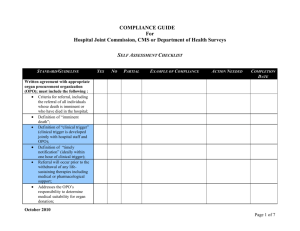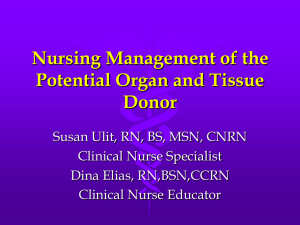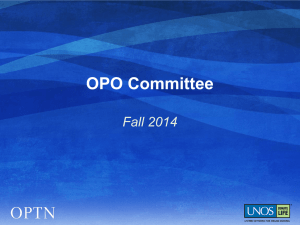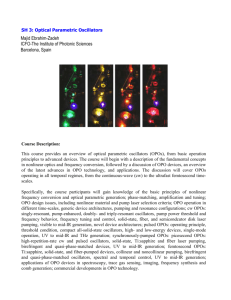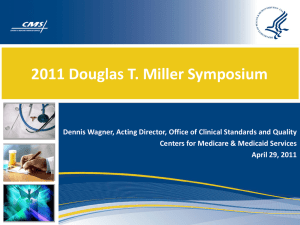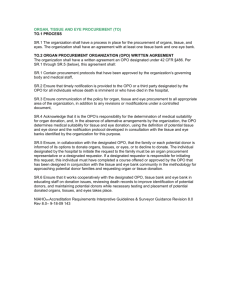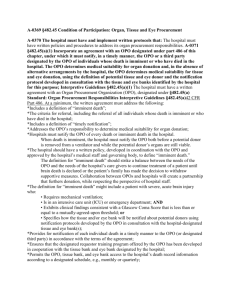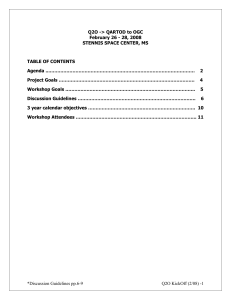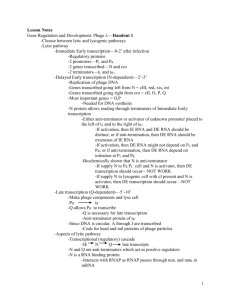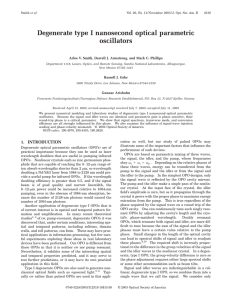Donation After Brain Death vs
advertisement
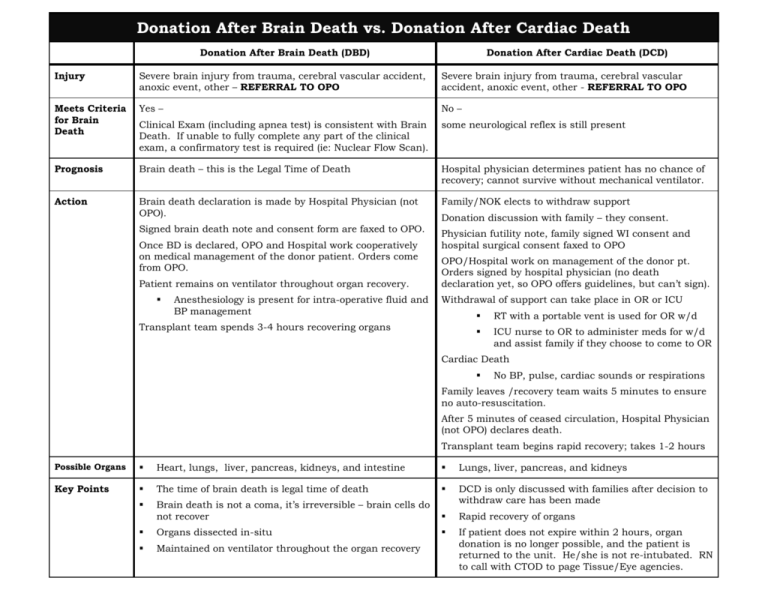
Donation After Brain Death vs. Donation After Cardiac Death Donation After Brain Death (DBD) Donation After Cardiac Death (DCD) Injury Severe brain injury from trauma, cerebral vascular accident, anoxic event, other – REFERRAL TO OPO Severe brain injury from trauma, cerebral vascular accident, anoxic event, other - REFERRAL TO OPO Meets Criteria for Brain Death Yes – No – Clinical Exam (including apnea test) is consistent with Brain Death. If unable to fully complete any part of the clinical exam, a confirmatory test is required (ie: Nuclear Flow Scan). some neurological reflex is still present Prognosis Brain death – this is the Legal Time of Death Hospital physician determines patient has no chance of recovery; cannot survive without mechanical ventilator. Action Brain death declaration is made by Hospital Physician (not OPO). Family/NOK elects to withdraw support Signed brain death note and consent form are faxed to OPO. Physician futility note, family signed WI consent and hospital surgical consent faxed to OPO Once BD is declared, OPO and Hospital work cooperatively on medical management of the donor patient. Orders come from OPO. Patient remains on ventilator throughout organ recovery. Anesthesiology is present for intra-operative fluid and BP management Donation discussion with family – they consent. OPO/Hospital work on management of the donor pt. Orders signed by hospital physician (no death declaration yet, so OPO offers guidelines, but can’t sign). Withdrawal of support can take place in OR or ICU Transplant team spends 3-4 hours recovering organs RT with a portable vent is used for OR w/d ICU nurse to OR to administer meds for w/d and assist family if they choose to come to OR Cardiac Death No BP, pulse, cardiac sounds or respirations Family leaves /recovery team waits 5 minutes to ensure no auto-resuscitation. After 5 minutes of ceased circulation, Hospital Physician (not OPO) declares death. Transplant team begins rapid recovery; takes 1-2 hours Possible Organs Heart, lungs, liver, pancreas, kidneys, and intestine Lungs, liver, pancreas, and kidneys Key Points The time of brain death is legal time of death Brain death is not a coma, it’s irreversible – brain cells do not recover DCD is only discussed with families after decision to withdraw care has been made Rapid recovery of organs Organs dissected in-situ Maintained on ventilator throughout the organ recovery If patient does not expire within 2 hours, organ donation is no longer possible, and the patient is returned to the unit. He/she is not re-intubated. RN to call with CTOD to page Tissue/Eye agencies. Make the Golden Hour Call UW Health - Organ Procurement Organization 1-866-UWHC OPO 1-866-894-2676 Refer all deaths and imminent deaths regardless of age or diagnosis within one hour Clinical triggers to call : A mechanically ventilated patient with a severe neurologic injury or insult and one of the following: A patient whom a physician is evaluating for brain death OR A patient with a Glasgow Coma Score (GCS) of 5 or Less OR A plan to discuss withdrawal of life sustaining therapies Timely notification is defined as referral to the OPO within one (1) hour of patient meeting the criteria for clinical triggers as defined above. Time from recovery to transplantation: Heart: 4-6 hours Lungs: 4-6 hours Liver: 12 hours Pancreas: 12-18 hours Kidneys: up to 48 hours Small Intestines: 4-6 hours Tissues: up to 5 years Corneas: up to 7 days ________________________________

